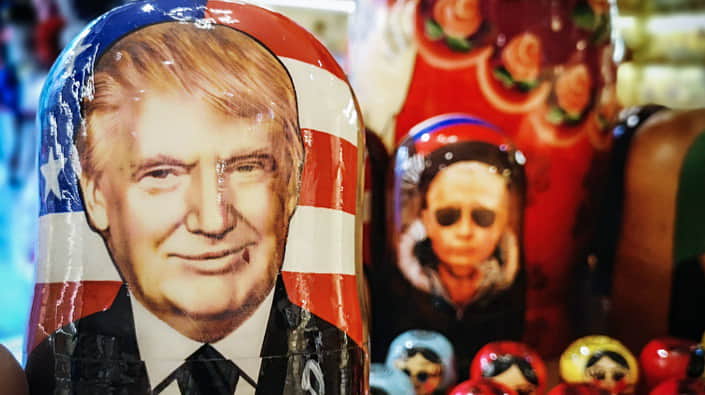Trump attacks Europe: why the EU was unprepared and what it should do now

European leaders knew that Vladimir Putin in the East and Donald Trump in the West would be a strategic nightmare scenario.
Yet they did almost nothing to achieve greater political unity and stronger defense capabilities in anticipation of precisely this outcome.
When Donald Trump won the US presidential election last November, European elites apparently thought that the United States would become a little more isolationist, a bit more nationalist.
But otherwise, continuity would prevail. Trump would demand that Europe pay more for its defense, but NATO – and the all-important US security guarantee for Europe – would survive.
Today, following senior US officials’ flurry of appearances at major European summits, we know that this was a grand error.
Trump wants nothing less than a complete rupture with the rules and alliances that generations of US policymakers painstakingly and successfully built in the decades after World War II.
From now on, Russia, not the European Union, will be America’s close partner.
It is no longer the solidarity of democracies that counts in Washington, but the agreement of autocratic rulers of global powers; might once again prevail over law.
This is obvious in Trump’s approach to the war of annihilation that Russia is waging in Ukraine.
Trump wants to end the war as quickly as possible in close cooperation with Russian President Vladimir Putin, excluding Ukraine and its European allies.
Ukraine and Europe will have to bear most of the political and material consequences, but they will have no say in negotiating the terms.
So, this is what Trump’s vision of international order looks like: back to spheres of influence, with great powers dictating the fates of smaller countries. It is a vision that delights Putin and Chinese President Xi Jinping, because it aligns perfectly with their authoritarianism and neo-imperial ambitions.
To be sure, Trump’s revisionism has placed the US on a path to self-weakening or even self-destruction, starting with the destruction of the West.
After all, NATO made the US strong and contributed decisively to the West’s victory in the Cold War. What national interest could the US possibly be advancing by laying the Alliance and Ukraine at Putin’s feet?
None of it makes any sense, and yet all of it was foreseeable. European leaders knew who and what they would get with a second Trump presidency, and that Trump was serious about transforming American democracy into an oligarchy and establishing a new, authoritarian world order. They knew that Putin in the East and Trump in the West would be a strategic nightmare scenario.
Yet they did almost nothing to achieve greater political unity and stronger defense capabilities in anticipation of precisely this outcome.
As a result, Europe is completely unprepared.
In the face of the historic shift Trump seems determined to carry out, Europe presents a pitiful picture, seemingly as hapless and hysterical as a henhouse when a fox enters. Europeans must ask themselves how they got here – and what to do now that the Trump administration has made its extremism plain.
Nothing less than Europe’s security and freedom are at stake. It should be obvious to all that "business as usual" is a recipe for disaster.
Europe has the money, the technological capacity, and the people and companies needed to secure its future. But it must act now. The EU’s large and medium-size states must cooperate closely.
The European Commission must redefine debt rules, and, together with the member states – and ideally involving the United Kingdom and Norway – finally create a combat-ready European army and a common European defense industry.
Europe is running out of time – and fast.
Hesitation and procrastination were yesterday's world. The choice is clear: Brussels or Moscow, freedom or submission.
For Europe, the answer can only be Brussels, only freedom. In his speech at the Munich Security Conference, US Vice President J.D. Vance made it brutally clear to Europeans how powerless they are and how alone they will be from now on.
Putin’s war in Ukraine and Trump’s impending betrayal of Ukraine demonstrate how dangerous European powerlessness is for all of us. In the future, peace and freedom on the European continent will have to be based primarily on our own strength and deterrence capacity.
That is why Europe must act immediately.
In Trump’s world, there is no substitute for hard power. Europe must spare no cost developing it. Or do Russian tanks have to roll toward Riga and Warsaw first?
This article originally appeared on Project Syndicate and is republished with permission from the copyright holder.